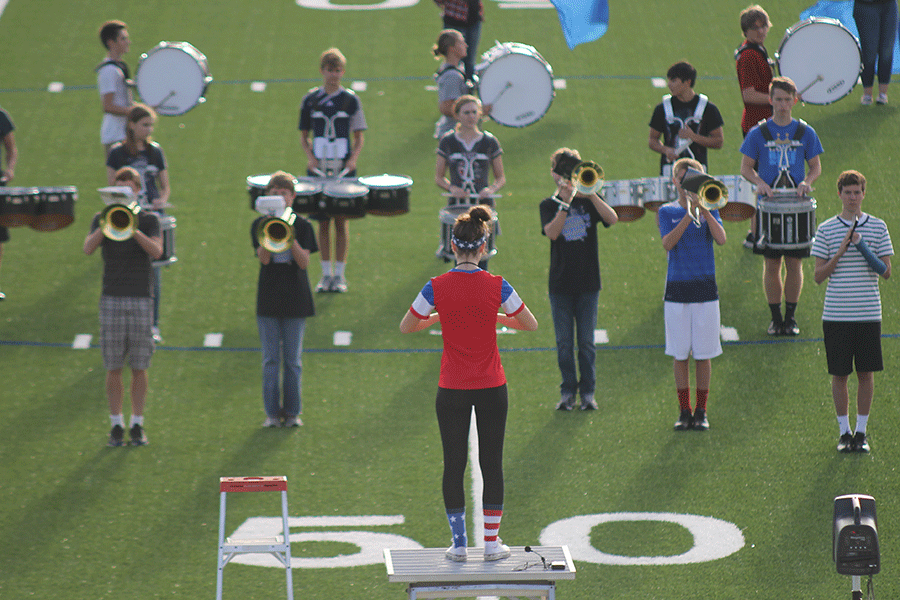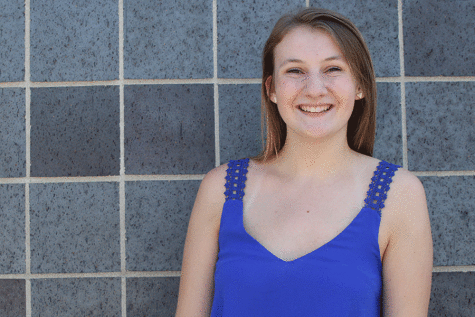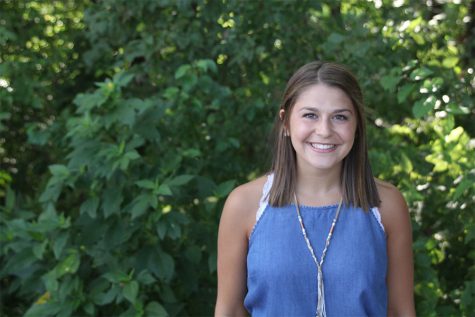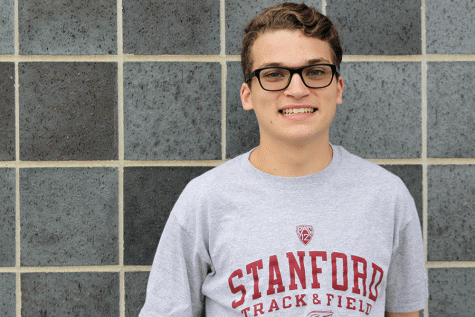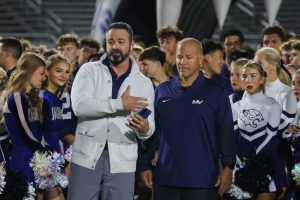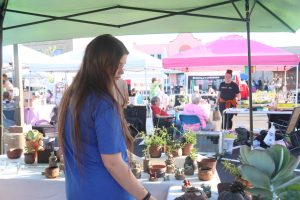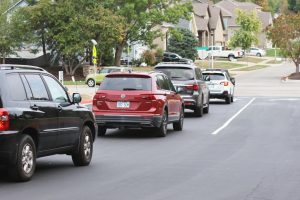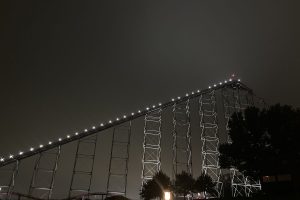New turf football fields placed at both district high schools
Improvements to fields look to provide better facilities for all athletics and actvities
In preparation for the halftime show, the band takes direction from senior Lindsay Hamner the morning of the football game against Blue Valley Northwest on Friday, Sept. 11. The band, as well as the football team, dance team and physical education classes have been able to use the turf since it was placed on the field.
September 24, 2015
Grass stains and standing puddles are a problem of the past for the football team, as the natural grass field was replaced with turf field over the summer.
Around eight months ago, a committee of parents, administrators and taxpayers came together to research the pros and cons of replacing Mill Valley’s natural grass field with a turf field. After presenting their case, the Board of Education made the final decision to put in the turf field, costing the district 1.2 million dollars, with a completion date of Wednesday, Aug. 26. De Soto High School was included in this process as they received a turf field as well.
The new turf has come with various benefits according to athletic director Jerald VanRheen, not only to the football team, but also activities and classes such as P.E.
“I’ve noticed [the PE classes] going out every morning, it doesn’t matter if it rained the night before, they have a place they can go out,” VanRheen said. “They can play, they can run, and whatever they want to do and it’s not going to turn into a muddy situation.”
Another way the turf is utilized is by the marching band led by director Deb Steiner. On the previous natural grass field, the band had to march around mud and uneven surfaces, which have now been remedied by the addition of the turf and help to better prepare for competitions.
“In the past what we have practiced on has not been a full-sized field,” Steiner said. “This was the first year that I could actually write our drill to encompass more of the field, which again is something that judges look at when we are going to competitions.”
Principal Tobie Waldeck has seen the turf as “providing our community a place to practice [for] our community teams.” While there have been many observable benefits with having turf, senior defensive back Joe Wilson has experienced minor drawbacks.
“The only drawbacks that can possibly happen are turf burns,” Wilson said. “It’s just kind of a bruise and it’s just bloody from the turf. The turf pellets get stuck in your leg. It’s actually hotter on the turf because of the black pellets.”
“The only drawbacks that can possibly happen are turf burns. It’s just kind of a bruise and it’s just bloody and stuff from the turf. The turf pellets get stuck in your leg,” Wilson said. “It’s actually hotter on the turf because of the black pellets.”
VanRheen has also noticed the effect of the new turf in regards to the conditions of the field and its ease of maintenance.
“Other benefits are being able to have three games back-to-back-to-back and not having to worry about beating your field up. Sometimes on a grass field it’s hard for maintenance crews to keep up with the striping,” VanRheen said. “Now there’s lines on the field everyday, and they’re perfect, they’re never going away.”
Waldeck agrees.
“[Turf] improves game conditions for soccer and football,” Waldeck said. “It reduces maintenance and we don’t [need] people out there cutting, weeding, seeding, fertilizing, painting stripes, so it helps with that.”
With newfound reliability in the field conditions, Silver Stars Dance Team captain senior Sarah Amos is excited that rain will no longer be a problem for the team’s performances.
“A lot of times last year it was raining at games, so the field was really muddy and it was really hard to dance on. The turf will make it a lot easier when it rains,” Amos said.
As well as improving the facility for students, the new turf field will save the district money in the long run.
“From my perspective, there are no drawbacks but I’m sure there will be things that will come up that we have to learn,” Waldeck said.
The Jaguars will be joining the EKL for the 2016-17 school year, and all of the EKL football teams compete on turf fields weekly. According to Wilson, having a turf field for one year prior will benefit the team.
“We will definitely be able to be compared to [EKL] schools with our facilities … [the turf is] really nice looking and the facilities look better,” Wilson said.
On the other hand, VanRheen doesn’t see the turf as having an impact on competing in the EKL.
“Really, where we want to be when we go to the EKL is we want to compete with them on the field, not necessarily what our field is,” VanRheen said. “One of the things about the EKL is everybody in the EKL have really nice facilities and [the turf is] adding to our facilities and hopefully we can continue to improve it so that people like to come to games here.”


